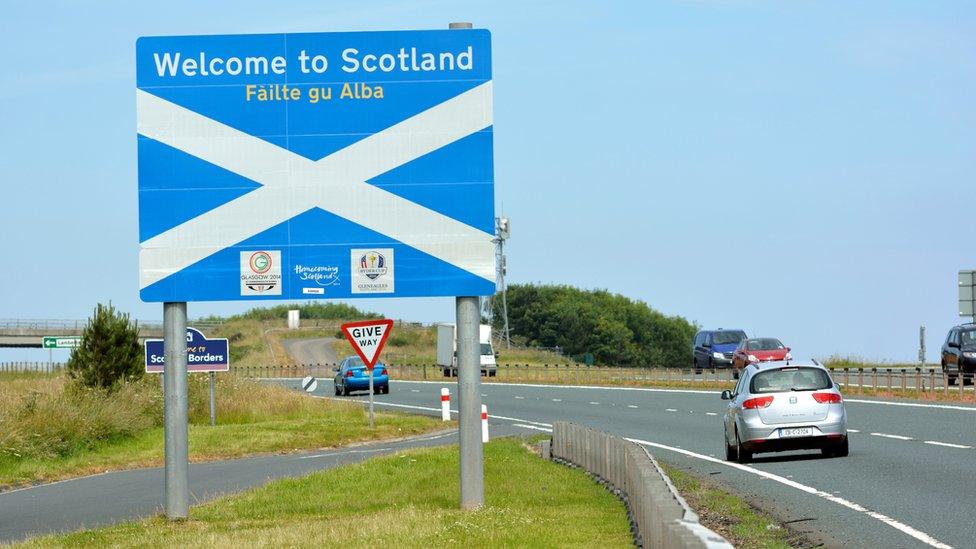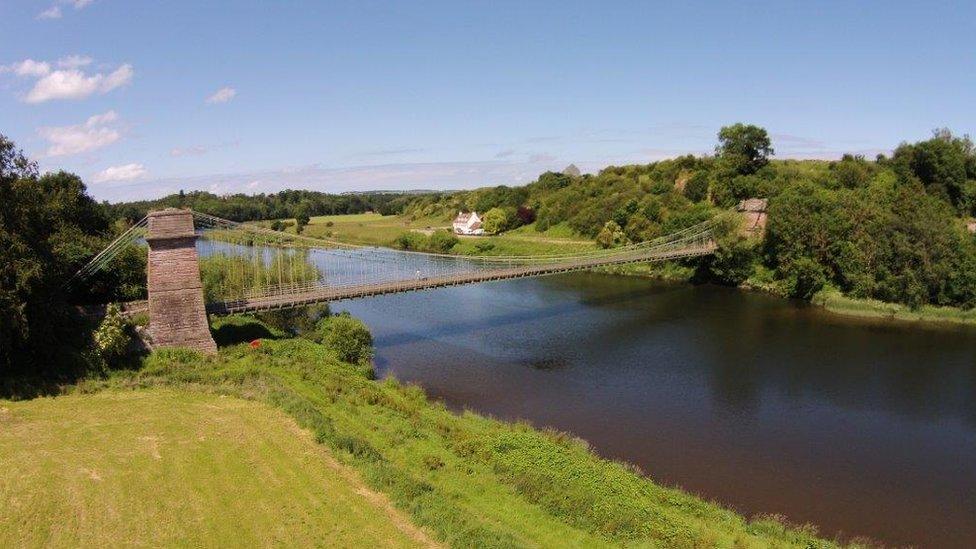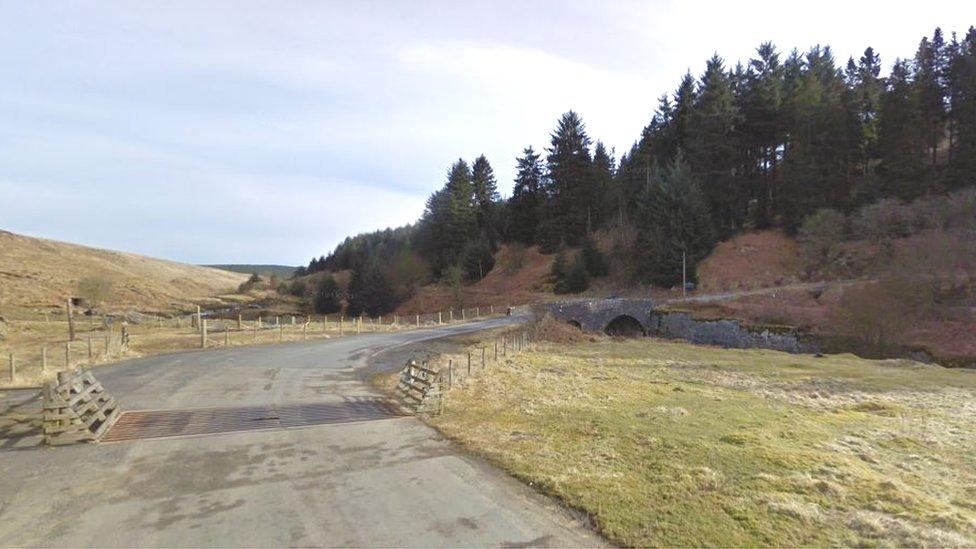Coronavirus: Can Scotland close the border with England?
- Published

Imposing travel restrictions on people entering Scotland from the rest of the UK has not been ruled out by Nicola Sturgeon. But what do calls to "close the border" actually mean in practice, and what could the Scottish government do?

Is there a border between Scotland and England?
This might seem like a fairly obvious point to start on, but it has actually been a subject of some debate thanks to Boris Johnson's assertion that there is in fact no border.
Mr Johnson was presumably speaking in a constitutional sense, given his position as Minister for the Union (a role he created himself and which according to his government's own website involves no responsibilities, external). A Conservative prime minister will inevitably take any opportunity to issue a reminder that people in Scotland voted to remain part of the UK in 2014.
However, there is clearly a line where Scotland ends and England begins, and vice versa. It winds from the river Tweed in the east to the Solway Firth in the west, and was established in close to its current form in 1237. The word "Tweed" actually means "border" in an ancient Celtic language.
More to the point, there is clearly a line where the Scottish government's authority and responsibilities begin - and thus where Nicola Sturgeon's control over responses to the coronavirus pandemic begins.

Tweed literally means "border" in an ancient Celtic language
What does 'close the border' mean?
One issue with this debate is that there isn't actually a firm policy on the table to examine. The Scottish government has not put this forward as a proposal, as such - rather it is frequently put to Ms Sturgeon as a question, and she refuses to rule it out on the basis she wants "all options on the table".
It is unlikely that the proposal in any scenario - even the chiefly imaginary ones we are working with here - would be to physically close the border, given it is 96 miles long.
There are dozens of roads which cross the border, and nobody is proposing erecting checkpoints on the A1 - or indeed the A74, A68, A7, A697 or even the B6318. There are a decent number of unnamed roads crossing back and forth where the closest thing to border infrastructure is a cattle grid.
A more realistic prospect would be asking people either not to travel from English virus hotspots into Scotland at all, or to ask them to quarantine on arrival.

One of the less heralded border crossings
What could the Scottish government do?
While borders and the constitution may be reserved to Westminster, public health and the wider response to the coronavirus crisis is very much devolved to Holyrood.
It is entirely within the gift of the Scottish government to have different quarantine rules north of the border - they already do, in requiring travellers arriving from Spain to isolate for two weeks.
So the approach outlined above, of having people from other parts of the UK quarantine on arrival, would effectively put the likes of Leicester in the same basket as Spain.
Actually enforcing such measures might be more difficult, given that it's easier to drive unobtrusively into Scotland from Carlisle than it is from Catalonia.
But a good many of the coronavirus restrictions imposed so far rely chiefly on trust, rather than the threat of punishment.
The current quarantine system involves one traveller in five getting a follow-up phone call to make sure they haven't been out and about too much - hardly a dawn raid by Border Force. Breaches can theoretically be punished by a fine of up to £1,000, but it appears none has actually been issued.
So this would be more about asking people to comply than making them. In that sense, the border was effectively closed for a while earlier in the pandemic, when the five-mile travel limit was in force in Scotland and English travellers were urged to abide by local restrictions.
Equally when parts of Dumfries and Galloway were briefly subject to stricter rules than the rest of the country due to a local outbreak, residents were told not to cross over into England to go to beer gardens.

Train lines cross the border as well as roads
Politics or public health?
Perhaps the biggest hurdle to setting up a divide between Scotland and England isn't a practical or public health one, but a political one.
Nicola Sturgeon has always insisted that she is 100% focused on the health question, that this is entirely about the suppression of a potentially deadly virus and not constitutional squabbling.
The problem she has politically is that she is the leader of the SNP, so much of what she does can be viewed by her opponents through the lens of that party's guiding purpose, Scottish independence.
The irony is that a Labour or Conservative first minister would probably have a much easier job imposing cross-border restrictions, because there wouldn't be the same hint of suspicion - however unfair it may be - about their motives.
All decisions about virus restrictions involve a tricky balance - public health and the economy, levels of risk and of public compliance. Ms Sturgeon has developed a reputation for weighing these factors up very carefully indeed so far in the pandemic.
She will hope that infection rates ultimately will not diverge sharply enough on either side of the Tweed to force her into a choice about quarantine measures - but if they do, this inescapable political element will make it a particularly a difficult one.